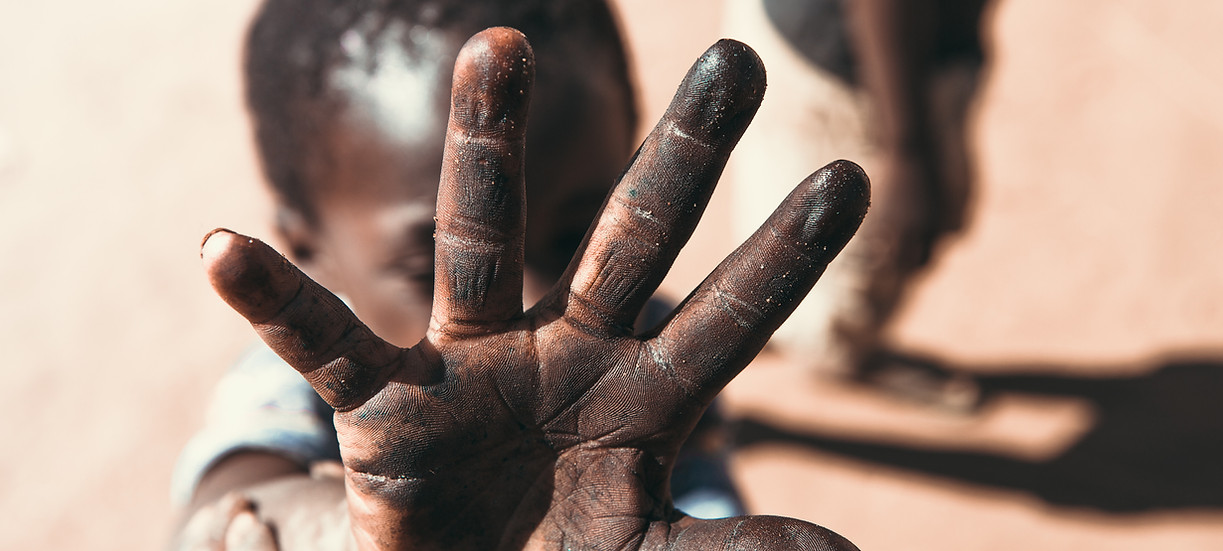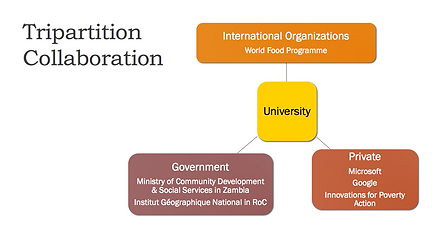Applying aid optimization beyond prediction
Eligibility and Distribution for
the Food Security Program in Zambia


Project Description
Beyond model performance, a critical gap persists in the application of these predictions to policy design. Zambia Multimodal Project examines how AI/ML based poverty prediction outputs (generated at a 1km-by-1km grid cell) from multi and unimodal data can be applied to guide resource optimization. This research leverages actual budget allocation of food aid across the finest geographic boundaries in Zambia. The research translates the prediction into concrete budget reallocation based on poverty reduction objectives.
Future study
Our study plans to further develop a systematic approach to balancing multiple objectives, with weights guided by community insights. For the poverty reduction objective, wealth predictions will be further refined through the initial three steps of this proposal. With respect to the regional parity objective, we plan to formulate a fairness measure for resource optimization as there is no widely accepted standard for measuring regional fairness, analogous to the FGT poverty measures per. Community input on the importance of each objective, elicited during the local validation stage, will guide the weighting in the final optimization. By integrating refined poverty estimates, a new regional fairness metric, and community-informed trade-offs between poverty reduction and geographic parity, we will advance the basic optimization approach discussed.
NUMBER OF RECIPIENTS FOR THE FOOD SECURITY PACK

In response to increasing food insecurity exacerbated by COVID-19, Zambia tripled the reach of its Food Security Program.
Despite this increased effort, the Food Security Pack (FSP) in Zambia lacks effectiveness in reaching poor and vulnerable communities.

Research
.................................................
Dr. Jung's latest research project aims to develop a multimodal approach that combines daytime satellite imagery and social media to estimate the wealth and livelihood of regions and shape aid distribution.
PARTNERS ....................................................

Recipient of the Research Council's Collaborative Multidisciplinary Award
PARTNERS ....................................................
Recipient of Microsoft's
AI for Humanitarian Action Project Initiatives' $25,000 Azure Grant.
PARTNERS ....................................................



Each year, billions of dollars are allocated internationally to alleviate poverty. Our work can contribute globally by offering novel sources of data for Zambia and neighboring countries to expand their social protection programs. After this project validates its performance in Zambia, we can apply the model to the Republic of the Congo, a neighboring country without the Demographic and Health Surveys (DHS) wealth data and in an even more challenging data environment.
RESEARCH TEAM .................................................................
The team consists of computer/data scientists
and social scientists:
-
Woojin Jung (PI) - Rutgers, School of Social Work
-
Dmitris Metaxas - Rutgers, Computer Science
-
Quentin Stoeffler - University of Bordeaux, Economics
-
Saeed Ghadimi - University of Waterloo, AI Institute
-
Dimitrios Ntarlagiannis - Rutgers, Earth and Env. Sciences
-
Arunesh Sinha - Rutgers, Mgmt Science and Information Systems
-
Min Xu - Rutgers, Statistics
-
Tawfiq Ammari - Rutgers, Communication and Information
-
Andrew Kim - Rutgers, School of Social Work
-
Maryam Hosseini - MIT, Urban Studies and Planning
-
Melissa Sartorius - Rutgers, School of Social Work
Research Duration
.................................................
July 2021 - Ongoing
The study will conclude with the dissemination of findings to policymakers.
3 STAGES ................................................
-
Assess the current machine learning model
-
Develop new algorithms with a wider application
-
Share this new field-tested and evaluated approach with policymakers
RESEARCH TEAM .................................................................
-
Sajedeh Goudarzi - Rutgers, Global Urban Studies
-
William Benjamin - Allstate Corp., Data Science
-
Rofaida Benotsmane - Istanbul Technical Univ., Economics
-
Yuxiao Lu - Singapore Management Univ., Computer Science
-
Vatsal Shah - Rutgers, Computer Science, Statistics
-
EJ Knopf - Rutgers, School of Social Work
-
Jamie Cramer - Rutgers, School of Social Work
-
Tamara Billima - Local NGO
-
Bernard Tembo - Local NGO
-
Owen Siyoto - Local NGO
-
Cheelo Mwiinga - Local NGO
The research team represents diversity across disciplines, countries/continents (Africa, Asia, US), languages, and cultures. Our study can contribute to broadening the reach of social protection programs by identifying vulnerable and poor populations in the Republic of the Congo and other countries where there is very limited, georeferenced wealth data.

